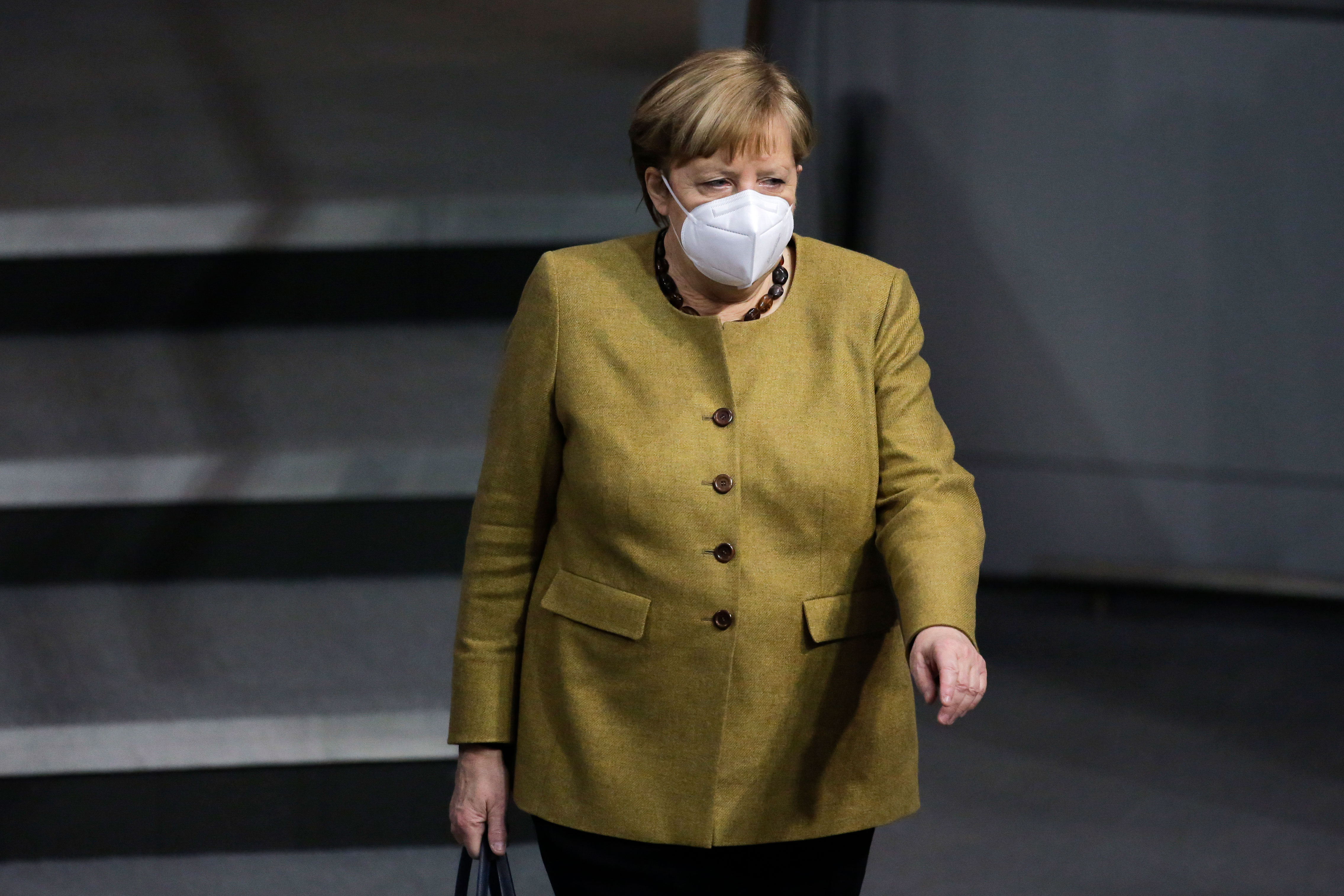Italy blocks export of Covid-19 vaccine doses, using EU powers for the first time

Germany will stretch the interval between administering the first and second doses of Covid-19 vaccines “to its maximum,” Chancellor Angela Merkel announced on Wednesday.
She said there will be a 42-day gap for the second dose of the Pfizer/BioNTech shot and a 12-week one for the second shot of the AstraZeneca/Oxford vaccine.
This will allow us to vaccinate more people faster for the first vaccination. This is also recommended by the STIKO [Germany’s vaccine commission],” Merkel said.
The Chancellor also said that in a bid to speed up the rollout of coronavirus vaccines, Germany will aim to swiftly distribute the shots through its network of family doctors’ practices.
“At the end of March and the beginning of April, the second strand will be the supply of vaccines to the general practitioners in addition to the vaccination centers, so that there will be even more flexibility in the entire vaccination process,” she announced.
The change to Germany’s dosing strategy comes after real-world data from studies appeared to vindicate the UK’s strategy of vaccinating as many high-risk people as possible with a first vaccine dose, and delaying the second shot.
The UK policy is for both Pfizer/BioNTech and AstraZeneca second doses to be administered towards the end of the recommended vaccine dosing schedule of 12 weeks, which has allowed for more than 20 million people to receive a first dose of a vaccine.
Germany has administered around 4 million first doses and 2 million second doses since beginning its vaccination campaign in January, according to official data.
The country’s vaccination authority has also approved the use of AstraZeneca’s coronavirus shot on the over-65s, the German health ministry told CNN on Thursday.
“The Standing Commission on Vaccination recommends the AstraZeneca vaccine also for persons over 65 years of age,” Health Minister Jens Spahn said in a statement.
“This is good news for all older people who are waiting to be vaccinated. They can be vaccinated more quickly.”
The statement added that new study data showed that when the interval between the first and second vaccination with the AstraZeneca vaccine is extended to twelve weeks, “it is even more effective.”
In January this year, Germany’s vaccine commission said AstraZeneca should not be given to people older than 65, citing insufficient data on its effectiveness.
But the policy u-turn comes after data from Public Health England released Monday suggested that a single dose of the AstraZeneca vaccine is highly effective against severe infection and hospitalization among elderly populations.
edition.cnn.com 2021-03-04 16:50:14



